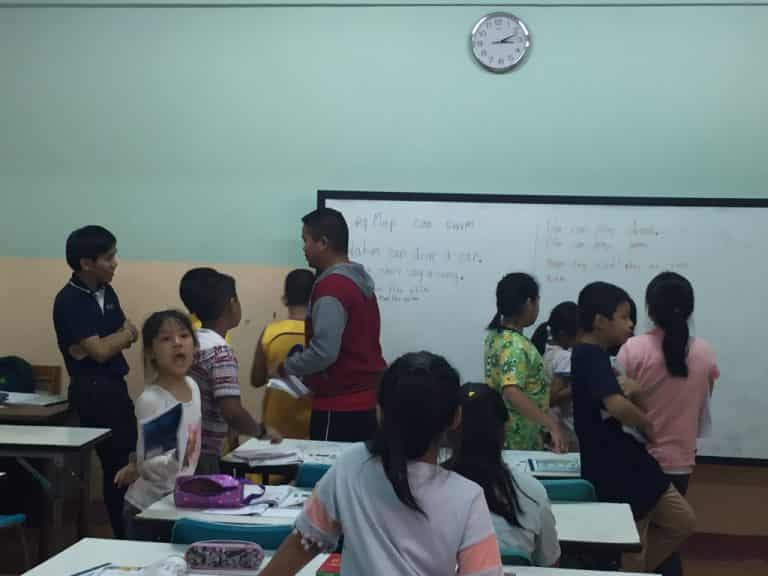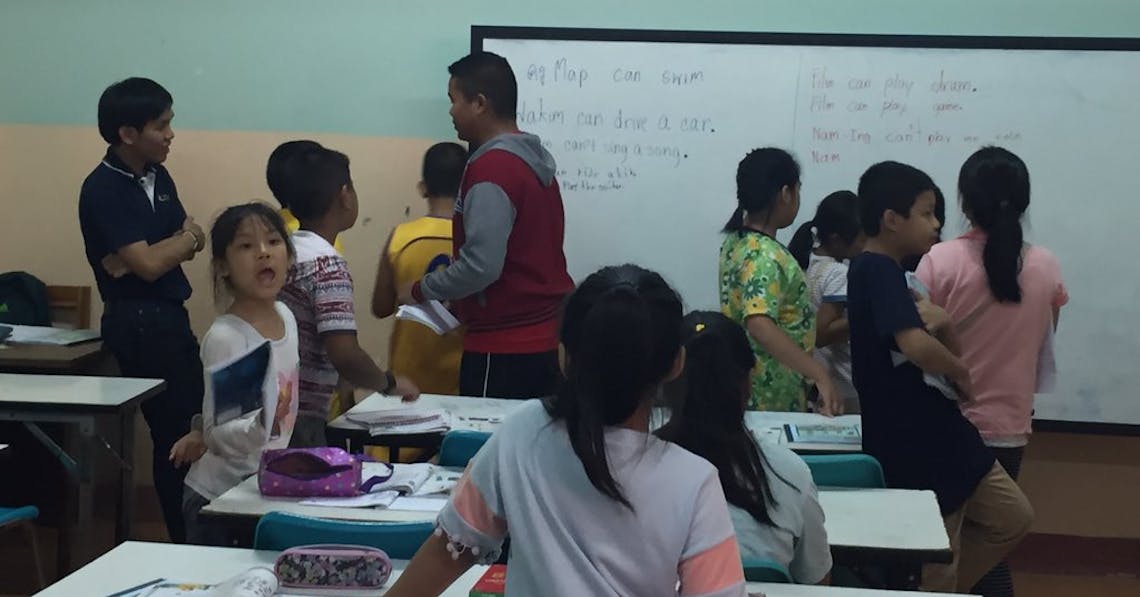We are all born with the hope of a successful life; we believe that we must be clever and aim for a higher education. Many parents, then, focus their attention on bettering their children’s education, sending them to study outside classes and gain as much knowledge as possible. In Thailand, tutorials outside the classroom are a norm and many parents and students spend much time and money on these extracurricular studies. As a fourth year student in Chiang Mai University’s Faculty of Humanities, and a part time English tutor, I cannot stop wondering whether it is right that so much of the children’s free time is spent studying, and how good it really is for them and their families.
Before this focus on extra education was established, what did Thai children do in the past? Well, I’m going to bring all of you back through time. Manager Website revealed that in the past, parents also sent their children to study extra classes, but the reasons were quite different from today. In the past, some parents did not have enough time to look after their children, and wanted to find something useful for children to do during the summer months or after classes. These tutorials were also fairly casual and was seen as a fun activity where children could spend extra time with their friends. So, to have extra classes became the best idea for them. But some parents considered summer as a time for their children to take a rest or spend time with family. If parents had to work at the office, they would sometimes take their children with them because they thought that the children could learn how to work at the office, too.
“In the past, there were not as many tutors as today,” Thitaporn Puncharoen, a 41-year-old Industrial Sales Executive who is also a mother, told me. “Only the rich sent their children to take extra classes, and it wasn’t every day or for all summer. Most of the children that time spent their summer time with family, such as helping their family make money, and some of them spent time with friends. For me, I remembered I always spent my summer time helping my family make money, playing with my pets, and reading cartoon books at home. I think I was very happy with my life at that time. But if I got the chance to take extra classes, I really wanted to do it but not as much as today and the subjects I took must not be the same as in the school.”
So, what about students nowadays? Eduzones Website has written an interesting article about extra classes in Thailand today. The writer stated that it is the result of the failure of the Thai education system. I think the reason for students taking extra classes seriously is quite funny. Thailand has the same examination standards, and if students wish to get to the best high schools or best universities, they must do well in these exams. But yet many schools use different syllabus such as IELTS, which do not help prepare for the examinations. The reason many of these alternative, non government curriculum, course are taught is because they are simply better. So, in order to do well in the Thai exam system, students lose the opportunity to study other, far better curriculum. Yet those curriculum are not beneficial to their exams, a crucial part of the furthering of their education. So in order to be both competitive and have a good education, Thai students are often finding themselves doing double the work by studying two curriculum simultaneously!

My question is whose fault is this? Is it that Thai schools and teachers do not adjust themselves to the standard that is set, or the standard used to measure Thai students is not really useful?
No matter whose fault it is, the result – and fallout – from this dichotomy is put directly onto the shoulders of Thai students. From my own experience as a tutor and student, students must adjust themselves to the examinations from both school and Thailand standard examinations, especially to be admitted into a university. The right university is crucial and so many children find themselves with no time to simply enjoy their youth as they are either in school preparing for exams, or outside schools studying for an education. As a result, the real children’s lives as in the past might be gone or changed into the lives of academic or studying.
“I have to take an extra class because my mother told me to choose one subject to study outside classroom,” said one of my luckier students, Pakorn Noiardharn, 15. “I chose to study English because I am not very good at it and I need a good score for university. I am OK with this as it is just one class so I don’t mind. But if it was more, I wouldn’t be happy with it as I still want to have time to rest.”
“I send my son to have extra classes because I don’t have time to teach him and he isn’t good at English that much,” Neeracha Putipairoj, my grade 4 student’s mother told me. “I want him to be better in English, and he is okay to be sent to study like this. In my opinion, it is a good idea for parents to send their children to study outside the class, but it must be in an appropriate range of time and not by force. Parents should manage time for their children nicely.”
Eduzones Website also revealed another interesting reason students join tutorials, which is may dismay some parents! Many teens today join tutorials as a way to get out of their home so that they can hang out with friends and find boyfriends or girlfriends. These are the students who rarely attend, but use the tutorials as an excuse. They tend to be students who are forced into tutorials.
So I think that it is important that parents really plan a balance when it comes to their children’s lives. Education, knowledge and accreditation are all very important, but so is socialising, private time and time with family. You should give them some free time during their holidays to do whatever they want, or simply let them rest. If you see a need for them to attend tutorials, make sure that it is not so time consuming that it puts too much pressure onto your children. As we know, an unhappy child does not pay attention in class and does not get anything from the lessons.
I hope you choose wisely.
